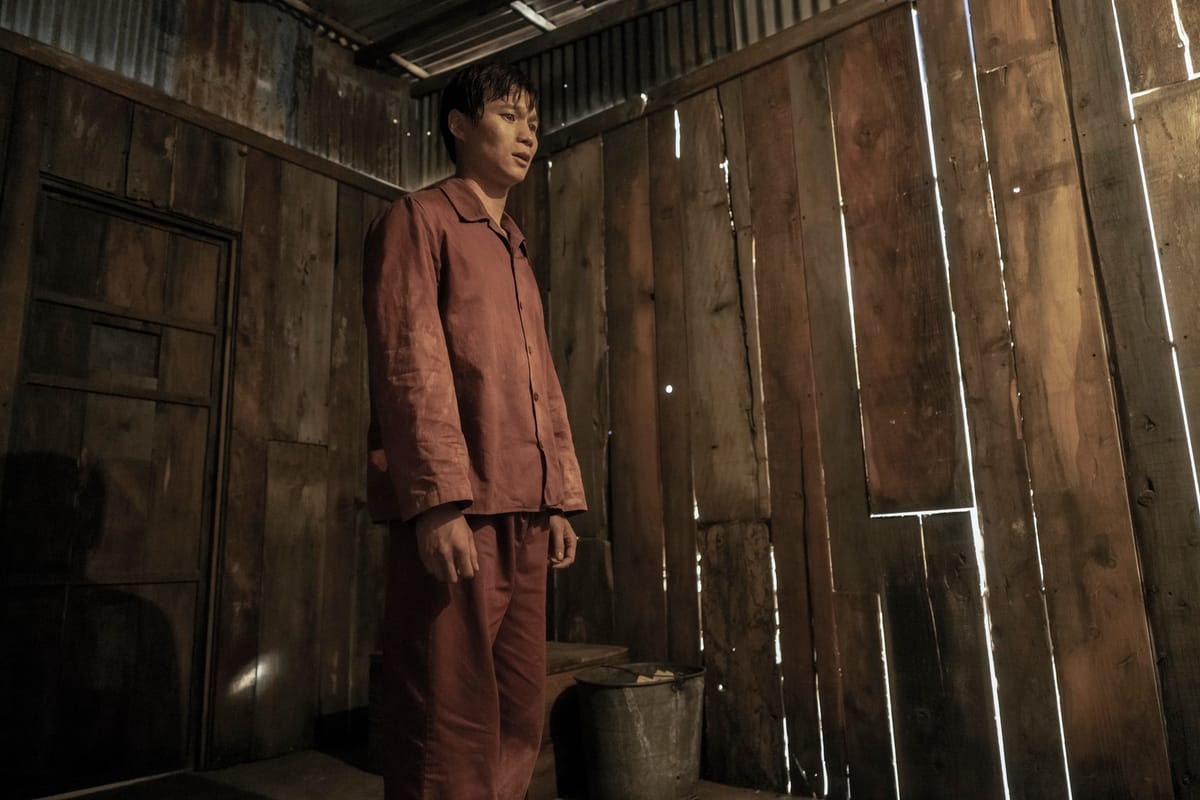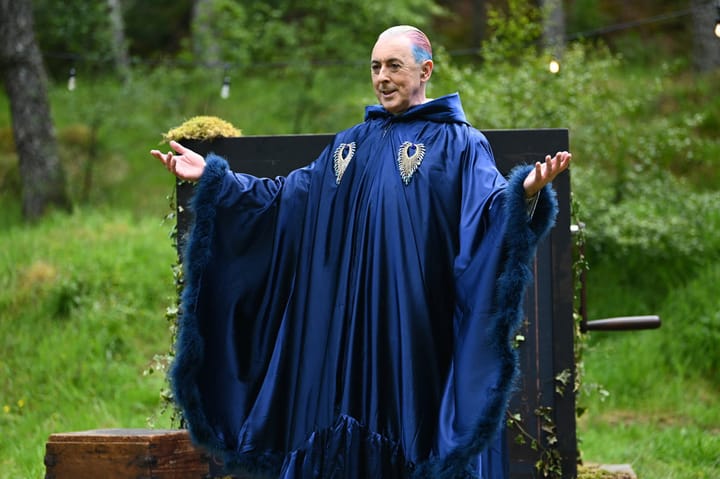Review: The Sympathizer, "Endings Are Hard, Aren't They?" | Season 1, Episode 7
You better believe they are

“There’s always something more to confess. That’s the nature of confession.”
In the first half of the Sympathizer series finale, “Endings Are Hard, Aren’t They?”, I was put in mind of the “Michael Ellis” episode of Monty Python’s Flying Circus. That seminal British sketch-comedy series wasn’t typically known for full-episode sketches, but every once in a while, the six members of the Python troupe would upend your expectations. The fourth-season episode “Michael Ellis,” in which a hapless straight-man type (played by Eric Idle) is constantly confused for an offscreen character named Michael Ellis is one such case. Much of the episode takes place in a gargantuan department store, and it appears to end when Idle’s character hears an announcement informing the customers that “Michael Ellis” week has ended and a new week bearing his character’s name has started.
That shifts to the final sketch, in which Idle and a store clerk played by the late Terry Jones sift through the different ways the episode could end, from a big romantic conclusion to an action-packed finale to the actual conclusion, as Jones’ character asks “What about a sudden ending?” and then the screen goes black1. The nature of endings, and of the correct ending, felt particularly apropos in this final chapter of The Sympathizer. Considering how playful this show has been from the start in rewinding and replaying and remixing moments so that we get enriched context and details, it’s not terribly surprising that there’s a scene here in which the Captain and the Commandant of his prison unit argue over how the Captain’s confession should end.
Should it end with the Captain noting that the General’s mission wasn’t just doomed to fail, but that it failed so badly that only he and Bon were captured, with the other men dying quickly? Should it end with the Captain going into great detail about the year of solitary confinement he had to endure while writing different drafts of the confession? Should it end on a moment of triumph, as if being brought to the “re-education camp” is the Captain’s big Rudy-style moment?



